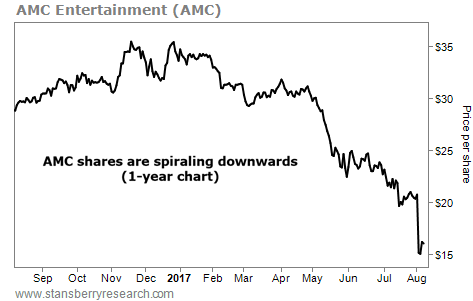| Home | About Us | Resources | Archive | Free Reports | Market Window |
The Only Two Reasons to Hire a Financial PlannerBy
Wednesday, August 9, 2017
Over the years, I've railed against paying so-called "experts" for things you can do yourself. More often than not, they're simply plugging your info into a computer program or spreadsheet that spits out an answer. It's usually worse than useless.
In general, you know what the best, most sound financial decisions for your life are...
But we've talked to several folks in different life stages. And there are two specific situations when you might consider hiring your own financial planner...
First, hiring a planner can be helpful if your time is limited.
For many people, researching financial planning is overwhelming or too time-consuming to put in the amount of effort you need.
Now, I love to comb through news and market reports and find the absolute best places to put my money (and where to recommend putting yours), but I realize not everyone enjoys that. Maybe you don't feel that you have the time to do the proper research or to hash out the best savings vehicles for your kids' education.
Second, if you're experiencing big changes in your life, sometimes getting a professional opinion is worth the time and money.
If you're thinking about retirement planning, a planner can help you figure out your goals and plan investments and savings to get there. Similarly, if you're starting a family, you may want to consult a planner about college-savings options. If you shift to a new, higher tax bracket or receive a large inheritance and want to make sure you're making the most of your finances, you might also consider a planner.
Now, if you do decide to use a planner, do your homework.
Your friend, neighbor, or co-worker might know "a guy" you should see. But it's vital that you do your own research before choosing the best planner for you and your situation.
The two biggest points to keep in mind are these...
|There are several types of financial planners out there, each catering to different needs. Understanding what goals you want to accomplish will help. Some planners specialize in taxes, others in estate planning or retirement. Still others are more general and can offer guidance across several fields. Make sure to ask about specialization before making an appointment. As for types of planners, you'll see Chartered Financial Analysts (CFAs), Certified Financial Planners (CFPs), and Certified Public Accountants (CPAs) – these are the three with the best experience, testing, and continued training from nationally recognized organizations.
Next, do a background check. This is a person you're going to entrust with lots of sensitive information. I recommend starting with a service like BrokerCheck.
Some financial planners act on their own and remain apart from bigger brokerages or institutions. Some banks even offer financial-planning services. There are three common three types of compensation: fee only, commission only, and commission and fee. Fees range from fixed-rate, flat, hourly, percentage, or performance-based. Get a good idea of what you'll need to pay for different levels of service from your planner.
You also need to know if your planner will receive compensation based on what they tell you to buy. For instance, if your planner works through a brokerage like Fidelity or T. Rowe Price, they may get paid for recommending in-house funds.
Fee structure and conflicts of interest should all appear in the basic disclosures from the planner. If they're not in there, find someone else.
I've said it over and over... No one will take better care of you than you.
That said, we all need a little help sometimes. If you fit one or both of these categories and have the money available to hire a planner, do a little research... instead of blindly going to the guy your neighbor recommended.
Here's to our health, wealth, and a great retirement,
Dr. David Eifrig
Further Reading:
If you decide to hire a financial planner, you must ask one critical question. Mark Ford shares the details in this classic DailyWealth essay: What You Should Ask Your Money Manager Today – Right Now.
Investing for retirement is difficult... But you aren't out of luck. "There are only three things you need to think about to earn an extra six figures in your retirement plan," Dave writes. Get the full story here.
Market NotesTHE FALL OF AN ENTERTAINMENT GIANT Today's chart highlights a victim of the cord-cutting movement...
Over the past few years, the entertainment industry has seen big changes. Now, with a decent Internet connection, you can watch almost anything online. People can now "cut the cord" and use Internet-based options like Netflix (NFLX) and Amazon (AMZN) for their entertainment needs. One of the victims of this trend has been the movie theater business. Consider shares of AMC Entertainment (AMC)...
AMC is the largest movie theater company in the world, with more than 1,000 theaters across the globe. But recently, AMC has struggled with declining box-office traffic. Last week, it reported a loss of nearly $180 million in the last quarter – much worse than the $4 million loss analysts expected.
As you can see below, AMC shares plunged nearly 27% on the news. Shares are now down almost 55% from their November highs... and just hit a new 52-week low. As more people stay home and turn to Netflix rather than forking over cash at the movie theaters, the future continues to look bleak for AMC shares...
 |
Recent Articles
|



